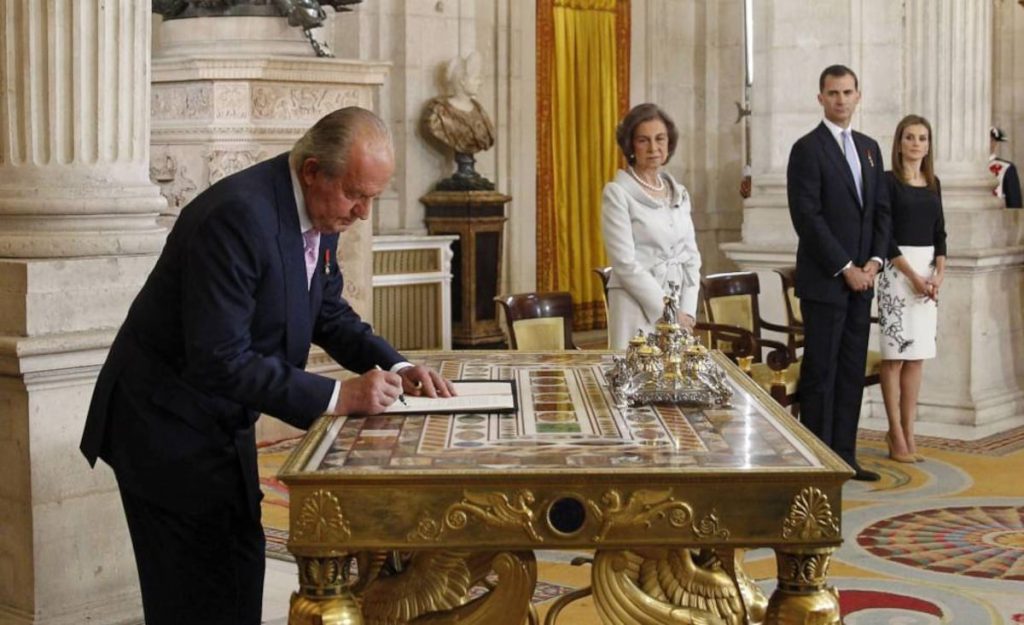Rafael Spottorno, the then head of the Royal House, barely slept on the night of June 1st, 2014. He woke up early and listened to the radio broadcasts. None of them anticipated what was going to happen that day, an event that would be told in the history books of Spain. Only then did he breathe a sigh of relief. The guardians of the secret of the abdication summoned the members of the TVE team recording the speeches of the Head of State early in the morning at the headquarters of the National Intelligence Center (CNI), barely six kilometers from the Zarzuela Palace. General Félix Sanz Roldán asked them to voluntarily hand over their cell phones to be stored in a bag and not used.
The then President of the Congress, Jesús Posada, finished a breakfast meeting at the Ritz hotel in Madrid when he was notified that he had a call from La Zarzuela. On the other end of the phone, he heard the voice of King Juan Carlos himself, who communicated his decision. He could only reply that if he had decided so, it would be the best for Spain. He was “very affected”, he recalls ten years later. The news of the abdication was already spreading like wildfire. Spottorno’s journey to reach that decision had been long and tortuous. Two years and two months earlier, in March 2012, Spottorno had called Ayuso to offer him the position of directing communications for the Zarzuela.
The taboo that had protected the Crown for decades was broken with the King’s hip surgery in 2013. The Royal House does not conduct surveys and the CIS has not asked the Spanish people what they think about the Monarchy since 2015. However, using a company that conducted weekly polls, the Zarzuela asked them to include a few questions about the Royal Family to regularly gauge public opinion.
At the end of 2012, Juan Carlos I hinted to General Sanz Roldán that he was considering leaving the throne to his son. The situation they faced was unprecedented. Among the aspects discussed were legal (organic law), political (when and how), and practical (the situation of the outgoing and incoming monarchs, as well as the rest of the family). The culmination of their discussions and decisions was the actual announcement of the abdication of Juan Carlos I. This decision was communicated first to his son and heir, who would be the future King.
The process accelerated after the death of Adolfo Suárez and the European elections that showed a shift in the political landscape. Rubalcaba played a crucial role in steering the abdication process to a successful end. The King’s desire to abdicate was influenced by several factors, including political climate, health issues, and the need for renewal in the institution. With the decisive involvement of Rubalcaba and other key figures, the abdication process was carried out swiftly and efficiently. The abdication of Juan Carlos I was a significant event in Spanish history, and the meticulous planning and execution of the transition were vital to its success.


